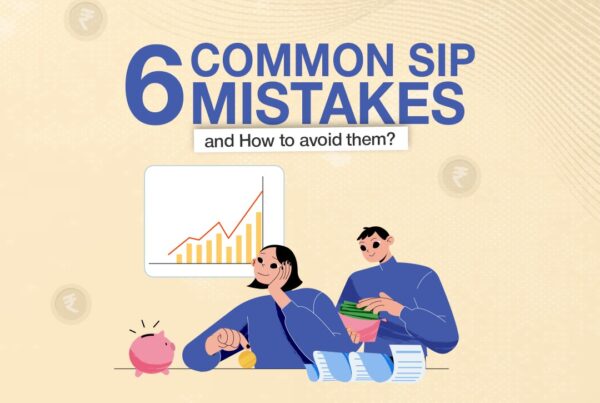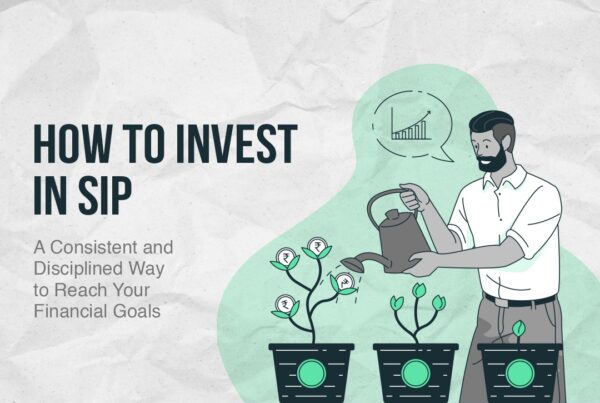Did you know that investment scams have caused Indians to lose a whopping Rs 222 crores just in the initial 4 months of 2024! (source: business-standard)
If you have a cellphone, chances are you’ve received one of those pesky investment scam calls. When you’re promised a solution to your financial problems, your logical side can often be overlooked. Sure, investing can help you build wealth, but it’s not as straightforward as some influencers make it seem.
What’s even more crucial than building wealth through investments is knowing how to protect your money from fraud.
So, let’s talk about how these scam companies can approach you, how to spot them, and how you can protect yourself from these scams and safeguard your money and wealth,
Recognizing Scammer Tactics
Scammers employ a variety of strategies often appearing credible and convincing. Here are some common tactics :
Unexpected Contact
Scammers can get pretty creative in how they reach out to you. They might call, message you on social media, send emails, or even text you, pretending to be someone familiar—your bank, financial adviser, fund manager, or even a friend. They’ll dangle the promise of guaranteed or unrealistically high returns on an investment. Sometimes, they’ll introduce themselves as a representative from a well-known company to gain your trust.
Life-Changing New System
Watch out for scammers pitching the “next big thing.” They might tell you about a groundbreaking new cryptocurrency, comparing it to familiar currencies like Bitcoin and claiming it’s still in the mining stage. This often turns out to be a ploy to get your money.
Adding to Social Media Groups
Some scammers might add you to social media groups offering stock market and investment classes, slowly building up to installing trading apps and investing your money, only to disappear with it
Websites with Fake SEBI Endorsements
These scams feature slick websites full of fake investment information and impressive performance figures. They might even claim to be endorsed by SEBI (Securities and Exchange Board of India) and display the SEBI logo to appear legitimate.
Dating Apps
Romance scammers use dating apps to build a relationship with you, and once trust is established, they pitch an “investment opportunity”—a tactic known as ‘romance baiting.’
Paid Advertising
Scammers often pay for ads to rank high in online search results and appear on social media. It helps them reach a wide audience and look trustworthy.
Deepfake Celebrity Endorsement Videos
Some fraudsters go high-tech, using deepfake videos of celebrities to promote fake investments.
How to Spot an Investment Scam
Have you ever been contacted by a scammer with offering unrealistic returns on investments, easy ways to get rich or multiply your money?
These fraudulent individuals and companies can be very convincing, using fake, professional-looking websites and mentioning famous companies and personalities. Here’s how to identify potential risks:
High Return, Low-Risk Schemes
One of the main tricks scammers use is the promise of “guaranteed high returns with little to no risk.” Remember, in the world of investing, the higher the return, the higher the risk. If someone claims you can get high returns with almost no risk, it’s likely a scam.
“Secret Method” to Get Wealthy
Beware of promises about secret methods or proven systems to make easy money. Genuine investments take time, effort, and a realistic approach. Scammers know people want to get rich quickly and effortlessly, but if it sounds too good to be true, it probably is.
Urgency to Invest
If someone is pressuring you to act quickly on an investment, that’s a red flag. High-pressure tactics are designed to rush you into making decisions without proper consideration. Another warning sign is if they discourage you from doing your own research. Real opportunities will give you time to evaluate and make informed decisions without any pressure.
Bonus for Recruiting Friends
Be cautious if an investment offers bonuses for recruiting friends. This tactic is common to expand their reach and make them seem more credible. Genuine investments don’t rely on recruitment for legitimacy.
Professional-Looking Websites with Limited Information
Scam websites often appear very polished but offer minimal information about the company’s management, location, or investment specifics. In today’s digital age, anyone can create a visually appealing website. Be cautious if a site lacks transparency and detailed information.
No Callback Allowed
If a company doesn’t allow you to call them back, it’s a major red flag. Legitimate companies encourage open communication and provide contact details. If a firm controls all communication, it’s probably a scam.
Different Types of Investment Scams
Have you ever lost money in investment scams?
Investment scams come in various forms. Here are some common types:
Ponzi Schemes
These scams promise high returns with little risk. They pay returns to earlier investors using the funds collected from newer investors, giving the false impression of a profitable venture
Example: The “Sahara India Pariwar” case in 2010 is a notable example. Sahara India Pariwar raised billions of rupees from millions of investors, promising high returns. However, when the company attempted to go public, it came under scrutiny from the Securities and Exchange Board of India (SEBI). SEBI found that the firm had no compliance, legal framework, or safeguards in place to protect investors’ funds. The case eventually reached the Supreme Court, which ruled against Sahara. Sahara was ordered to refund Rs 24,000 crores plus interest to investors and its public offering was halted.
Pyramid Scheme
In these scams, each investor recruits more investors, with the promise of high returns to the original promoters. The scheme fails if there aren’t enough new investors.
Example: The “Amway” case in India is notable. Amway’s business model was accused of being a pyramid scheme because it relied heavily on recruiting new members rather than selling products. In 2014, Amway India’s CEO, William S. Pinckney, was arrested for allegedly breaking the Prize Chits and Money Circulation Schemes (Banning) Act and jailed in Andhra Pradesh.
Pump and Dump Schemes
Scammers artificially inflate the price of a stock by spreading false or misleading information to create a buying rush. Once the stock price is high, they sell off their shares, leaving other investors with worthless stock.
Example: One notable example of a Pump and Dump Scheme is the Ketan Parekh scam. Parekh would acquire a significant portion (20-30%) of a company’s shares, artificially inflating its price. This price increase would attract other investors, further driving up the stock price. Once the stock price peaked, Parekh would sell off his shares, profiting from the inflated prices. In 2001, Ketan Parekh was arrested for his role in pump and dump schemes and other such fraudulent activities.
Advance Fee Fraud
Scammers ask investors to pay an upfront fee or promise to pay a commission for a promising investment opportunity. Once the fee is paid, the scammer disappears, and the investment opportunity turns out to be fake.
Example: The “Speak Asia” scam involved a survey company that promised high returns to its members for filling out online surveys. Members were asked to pay an upfront membership fee. The company collected over Rs 2,200 crores from its members before being exposed as a scam in 2011.
Cryptocurrency Scams
With the rise of digital currencies, cryptocurrency scams have become increasingly common. These scams often involve fake ICOs (Initial Coin Offerings), Ponzi schemes, or phishing attacks to steal digital assets.
Example: Let’s look at the “GainBitcoin” scam as a case-study. GainBitcoin operated as a pyramid, multi-tiered scheme. The scheme promised a 10% monthly return on Bitcoin deposits for 18 months through multi-tiered marketing programs. Investors were enticed to lend their Bitcoins to the company, with the guarantee that their investments would grow over the specified period.
However, the scheme failed to deliver the promised returns. Like many other scams, once they amassed a significant amount of money, they ceased making payments, leaving numerous investors without their invested funds. The key accused, Amit Bhardwaj, died in police custody in 2022. The investigation continues, focusing on his brother and wife, in hopes of recovering the investors’ money.
Offshore Scams
These scams involve setting up fake companies in foreign countries and luring investors with the promise of high returns. Because the companies are offshore, it’s harder for investors to verify their legitimacy or recover their money.
Alongside these, countless investment scams are associated with the stock market, gold, real estate, and more. However, the common thread among these frauds is the promise of magical returns.
How to Protect Yourself from Investment Scams
Here are some recommended actions for protecting yourself from investment scams:
Do Your Research
Before you invest, make sure you thoroughly understand the company’s business model, financial health, and market reputation. Rely on trustworthy sources and verify information across multiple platforms. Don’t be swayed by impressive talk from callers or slick, professional-looking websites. Additionally, search online for the company or program along with terms like “review,” “scam,” “fraud,” or “complaint.”
Don’t Rush into Investments
Scammers often try to create a sense of urgency, claiming there are limited spots or special deals to pressure you into investing quickly. They don’t want you to take time to research or think things through. Avoid haste—take your time to make informed decisions and don’t let anyone pressure you into investing.
An investment firm has contacted me. How can I check its legitimacy?
Consult a Financial Expert
One of the best ways to avoid investment scams is by seeking help from a registered financial expert. They provide personalized suggestions tailored to your financial objectives and risk tolerance. With their expertise, you can gain valuable insights into market trends and suitable investment products. Plus, they adhere to regulatory standards, ensuring your investments are managed responsibly.
To safeguard yourself from investment scams, stay rational, conduct thorough research, verify the registration of investment firms, and consult a certified financial expert before making any investment decisions. These steps can help you avoid falling victim to fraudulent schemes and protect your hard-earned money.
Do you need a financial expert to protect you from investment scams and help you in your investment journey?
If you’re seeking the expertise of a financial professional to make informed investment decisions, Moolaah can help you. Moolaah is a cutting-edge investment platform that connects you with AMFI-registered mutual fund distributors to tailor a personalized investment plan. Moolaah is the retail platform of PRP Edge, a SEBI-registered Merchant Banker, MF Distributor, and Portfolio Manager, managing an “Asset Under Advisory ” of Rs 1.50 lakh crores.




